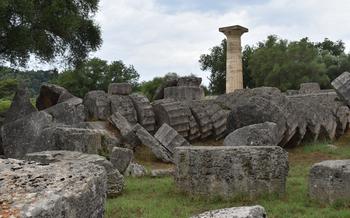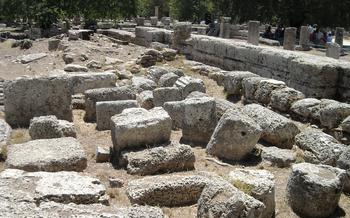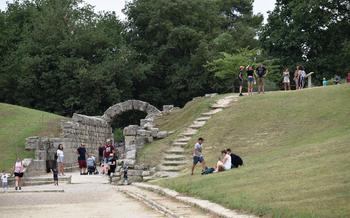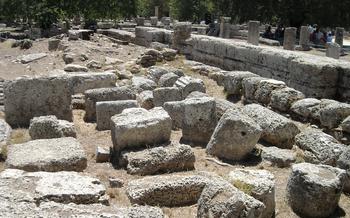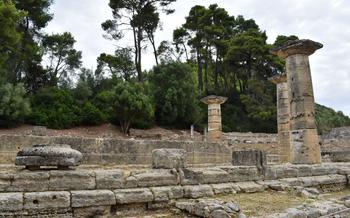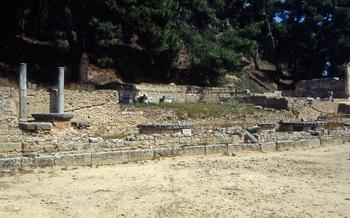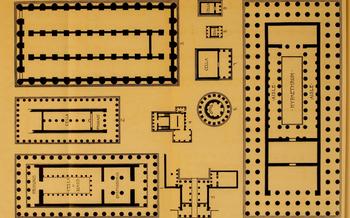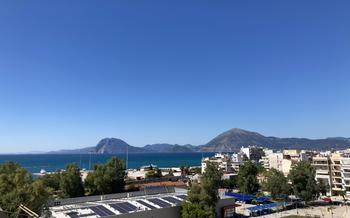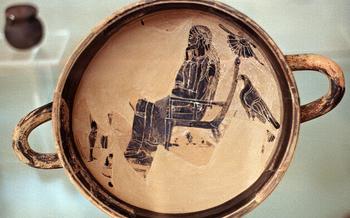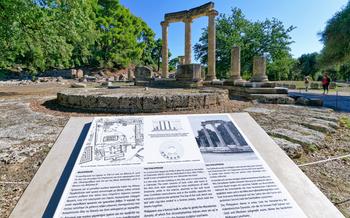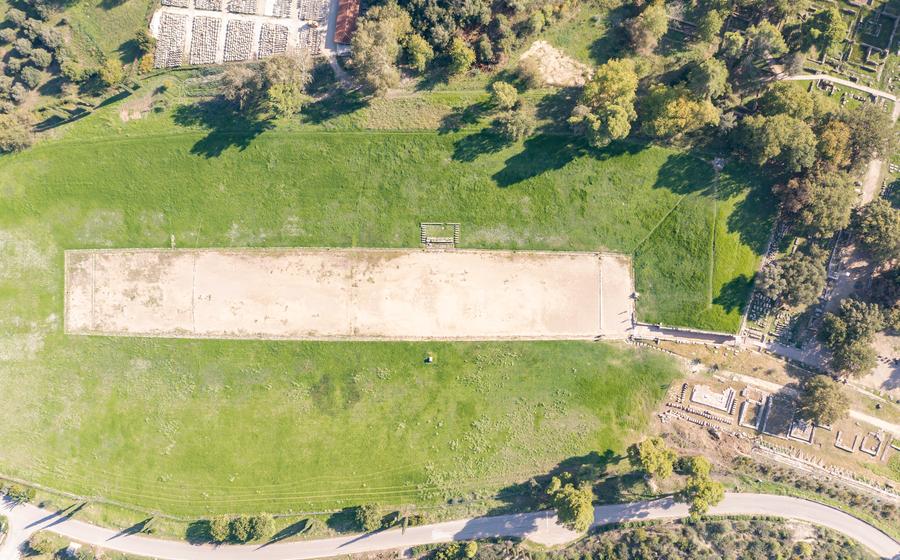
Vartholomio Baths
- A Journey to Ancient Wellness: Unveiling Vartholomio's Baths
- Stepping into History: Exploring the Ancient Ruins
- Bathing Rituals and Healing Practices of the Ancients
- Reviving the Ancient Baths: A Story of Restoration
- Therapeutic Wonders: The Healing Power of Thermal Waters
- A Day at Vartholomio Baths: A Personal Experience
- A Sanctuary for Relaxation and Rejuvenation
- A Walk Through the Sacred Precinct
- Witnessing the Grandeur of the Olympic Games
- Marveling at the Masterpieces of Ancient Art
- Savoring the Delights of Regional Cuisine
- Exploring the Surrounding Natural Wonders
- Practical Tips for a Smooth Visit
- Insider Tip: Unveiling Hidden Gems
A Journey to Ancient Wellness: Unveiling Vartholomio's Baths
Nestled in the picturesque region of Ilia, Greece, lies a hidden gem that transports visitors back to the era of ancient wellness and rejuvenation—the Vartholomio Baths. These remarkable baths, steeped in history and surrounded by stunning natural beauty, offer a unique experience that combines historical exploration, relaxation, and therapeutic benefits.
The Vartholomio Baths, dating back to the 4th century BC, were an integral part of the ancient Greek culture. They served as a sanctuary for healing, where individuals sought relief from various ailments and embraced the restorative powers of thermal waters. The baths were not merely a place for physical rejuvenation but also a gathering place for social interaction, philosophical discussions, and spiritual contemplation.
The architectural design of the baths is a testament to the ingenuity of the ancient Greeks. The complex features separate bathing areas for men and women, each consisting of a series of pools filled with thermal waters of varying temperatures. The baths were adorned with intricate mosaics, sculptures, and fountains, creating an ambiance of serenity and opulence.
The thermal waters of Vartholomio were renowned for their healing properties. Naturally enriched with minerals and therapeutic elements, they were believed to alleviate a range of conditions, including rheumatism, arthritis, skin diseases, and respiratory ailments. The ancient Greeks understood the importance of holistic well-being and regarded bathing in thermal waters as a sacred ritual that promoted both physical and mental health.
In recent years, the Vartholomio Baths have undergone extensive restoration efforts, meticulously preserving their historical integrity while incorporating modern amenities for the comfort of visitors. This remarkable project involved the collaboration of archaeologists, conservators, and architects, who worked tirelessly to restore the baths to their former glory.
The Vartholomio Baths stand as a testament to the enduring legacy of ancient Greek culture and its emphasis on health and well-being. Visitors to this unique destination can immerse themselves in history, experience the healing power of thermal waters, and embark on a journey of relaxation and rejuvenation.
Stepping into History: Exploring the Ancient Ruins
Vartholomio Baths is not just about the thermal waters; it's also an archaeological treasure trove. The site boasts the remains of temples, theaters, and other structures that offer a glimpse into the ancient world. The most significant structure is the Temple of Apollo, built in the 4th century BC. The temple, though in ruins, still exudes grandeur and showcases the architectural prowess of the ancient Greeks. Other notable ruins include the Odeon, a small theater used for musical performances, and the Gymnasium, where athletes trained and prepared for the Olympic Games.
Ongoing excavations at the site continue to reveal new discoveries, providing valuable insights into the history and culture of ancient Greece. Artifacts unearthed during these excavations, such as pottery, tools, and inscriptions, are displayed at the onsite museum, offering a deeper understanding of the daily lives of the people who once inhabited this sacred space.
Bathing Rituals and Healing Practices of the Ancients
For the ancient Greeks and Romans, bathing in thermal waters was not merely a leisurely activity but a sacred ritual deeply intertwined with their beliefs and customs. The baths were considered places of healing, purification, and rejuvenation, where individuals could seek relief from various ailments and restore their physical and spiritual well-being.
The waters of Vartholomio were believed to possess remarkable medicinal properties, attributed to their unique composition and high mineral content. People from all walks of life, including athletes, soldiers, and ordinary citizens, flocked to the baths to immerse themselves in the warm, soothing waters, seeking relief from ailments such as rheumatism, arthritis, skin diseases, and respiratory problems.
Beyond their therapeutic benefits, the baths also played a significant role in promoting social and cultural interactions. Bathing was a communal activity, where individuals from different backgrounds gathered to socialize, exchange stories, and forge connections. The baths were also venues for religious rituals and ceremonies, where offerings were made to deities associated with healing and well-being.
Over time, bathing practices evolved, and the baths underwent modifications to accommodate changing needs and preferences. Public baths became increasingly elaborate, featuring separate sections for men and women, as well as amenities such as pools, saunas, and massage rooms. The baths also became centers of entertainment, with performances, music, and food vendors adding to the overall experience.
Reviving the Ancient Baths: A Story of Restoration
The restoration of the Vartholomio Baths was a challenging endeavor that required meticulous planning and collaboration between archaeologists and conservators. The primary goal was to preserve the integrity of the ancient structures while making them accessible to visitors.
To achieve this, a comprehensive approach was adopted. First, detailed surveys and documentation of the existing ruins were conducted to create a baseline for the restoration process. Next, traditional techniques and materials, such as lime mortar and local stone, were used to restore the walls, pools, and other features of the baths.
Throughout the process, archaeologists and conservators worked hand in hand to ensure that the restoration efforts were both historically accurate and respectful of the original design. The result is a beautifully restored ancient site that allows visitors to experience the healing power and historical significance of the Vartholomio Baths firsthand.
The restoration of the Vartholomio Baths is a testament to the importance of preserving our cultural heritage. By bringing these ancient structures back to life, we can gain a deeper understanding of the past and continue to appreciate the enduring legacy of ancient Greek civilization.
Therapeutic Wonders: The Healing Power of Thermal Waters
The thermal waters of Vartholomio Baths are renowned for their unique composition and properties, believed to possess remarkable healing powers. Rich in minerals and trace elements, these waters have been sought after since ancient times for their therapeutic benefits.
Modern scientific research has confirmed the efficacy of the thermal waters in alleviating various health conditions, including rheumatism, arthritis, skin diseases, and respiratory ailments. The high concentration of minerals, such as calcium, magnesium, and sulfur, plays a crucial role in promoting healing and reducing inflammation.
Individuals who have immersed themselves in the thermal waters have reported significant relief from pain, improved mobility, and enhanced skin health. The warm, soothing waters provide a relaxing and therapeutic experience, promoting overall well-being and rejuvenation.
A Day at Vartholomio Baths: A Personal Experience
My journey to Vartholomio Baths transported me back in time, immersing me in the ancient world of wellness and healing. As I stepped into the archaeological site, I was greeted by the awe-inspiring ruins of temples, theaters, and other structures that spoke volumes about the significance of this place in antiquity. The atmosphere was palpable, filled with a sense of tranquility and serenity that invited me to relax and unwind.
Approaching the thermal baths, I couldn't resist the allure of the warm, inviting waters. I gently lowered myself into one of the pools, feeling the soothing warmth envelop my body. As I soaked in the thermal waters, I could almost imagine the ancient Greeks indulging in the same ritual, seeking relief from ailments and promoting their well-being.
The healing properties of the waters were evident as I felt my muscles relax and tension melt away. I closed my eyes and let the tranquility wash over me, allowing the thermal waters to work their magic. It was an experience that transcended the physical, offering a profound sense of rejuvenation and inner peace.
After my revitalizing bath, I took some time to explore the ruins surrounding the baths. The ancient structures, weathered by time, told stories of a civilization that valued health and well-being. I marveled at the ingenuity of the ancients, who had harnessed the power of nature to create a sanctuary for healing and relaxation.
As the sun began to set, casting a golden glow over the archaeological site, I reluctantly bid farewell to Vartholomio Baths. I left feeling refreshed, rejuvenated, and deeply connected to the ancient world. It was an experience that would stay with me long after I returned home, a reminder of the healing power of nature and the enduring legacy of ancient Greek culture.
A Sanctuary for Relaxation and Rejuvenation
Vartholomio Baths offers a serene and tranquil ambiance, providing an ideal setting for relaxation and stress relief. Surrounded by lush greenery and the gentle sound of flowing water, visitors can immerse themselves in a peaceful oasis that promotes inner peace and tranquility. The naturally heated thermal waters create a soothing and rejuvenating experience, allowing the mind and body to unwind and recharge.
Whether seeking respite from the demands of daily life or simply seeking a moment of self-care, Vartholomio Baths offers a haven for relaxation and rejuvenation. Visitors can indulge in the therapeutic waters, soak in the tranquil surroundings, and emerge feeling refreshed, rejuvenated, and revitalized.
A Walk Through the Sacred Precinct
Olympia, with its rich history and religious significance, offers visitors a remarkable opportunity to explore the sacred precinct where ancient Greeks worshipped and honored their deities. As you walk through this awe-inspiring site, you will encounter a collection of temples dedicated to various gods and goddesses, each holding a unique place in Greek mythology.
At the heart of the precinct lies the Altis, a sacred grove that was once the center of religious ceremonies and rituals. Here, you can marvel at the grandeur of the Temple of Zeus, where the iconic statue of Zeus by Phidias once stood. The temple's impressive Doric columns and intricate pediments provide a glimpse into the architectural prowess of the ancient Greeks.
Other notable temples within the precinct include the Temple of Hera, dedicated to the goddess of marriage and childbirth, and the Temple of Apollo, honoring the god of music and prophecy. Each temple holds its own stories and legends, offering visitors a chance to delve deeper into the mythology and religious beliefs of ancient Greece.
As you wander through the sacred precinct, take a moment to appreciate the smaller structures and offerings that adorned the site. Altars, statues, and dedications to various deities line the paths, providing a glimpse into the personal devotion and gratitude expressed by the ancient Greeks.
The archaeological site of Olympia is a testament to the deep religious beliefs and practices of ancient Greek civilization. A walk through the sacred precinct is a journey back in time, allowing visitors to experience the awe and reverence that once filled this sacred space.
Witnessing the Grandeur of the Olympic Games
Olympia, the birthplace of the ancient Olympic Games, offers a glimpse into the history and significance of this global sporting event. The games, held in honor of Zeus, the king of the gods, attracted athletes from all over Greece and beyond. Over time, they evolved into a grand festival that celebrated athleticism, sportsmanship, and the pursuit of excellence.
The Olympic Games were not merely competitions; they held profound cultural and religious importance. The athletes competed in various disciplines, including running, wrestling, boxing, and chariot racing. Victories were celebrated with lavish banquets and the crowning of olive wreaths, symbolizing honor and prestige.
Olympia's archaeological site showcases the grandeur of the ancient games. Visitors can explore the ruins of the Olympic Stadium, where thousands of spectators cheered on the athletes. The starting line, finish line, and seating areas are still visible, transporting visitors back in time to witness the excitement and energy of these legendary events.
The Olympic Games left a lasting legacy that continues to inspire modern-day sports and competitions. Their emphasis on fair play, athleticism, and the pursuit of personal bests has shaped the world of sports as we know it. By visiting Olympia, travelers can connect with the origins of this global phenomenon and appreciate the enduring spirit of the Olympic Games.
Marveling at the Masterpieces of Ancient Art
Within the boundaries of Olympia, a treasure trove of ancient masterpieces awaits discovery at the Archaeological Museum of Olympia. This esteemed institution serves as the custodian of a captivating collection of sculptures, artifacts, and treasures that illuminate the artistic prowess of ancient Greek civilization. Among the museum's highlights are the Hermes of Praxiteles, an exquisitely crafted marble statue that captures the essence of divine grace, and the Nike of Paionios, a breathtaking bronze sculpture that embodies victory and triumph. These remarkable artworks provide a glimpse into the creative genius of ancient Greek artists and offer invaluable insights into the cultural and religious practices of this bygone era.
Savoring the Delights of Regional Cuisine
Olympia offers a culinary journey that tantalizes the taste buds and introduces visitors to the rich flavors of traditional Greek cuisine. Indulge in mouthwatering dishes prepared with fresh, local ingredients, reflecting the culinary heritage of the region. Must-try delicacies include moussaka, a hearty casserole of eggplant, potatoes, and ground beef, topped with a creamy béchamel sauce. For a taste of grilled perfection, savor souvlaki, succulent skewers of marinated meats, expertly grilled over charcoal. Explore local tavernas and restaurants, where the atmosphere is convivial, and the food is prepared with passion and authenticity. Discover the influences of different regions of Greece, as each dish tells a story of culinary traditions passed down through generations. Whether you prefer seafood, meat, or vegetarian delights, Olympia's culinary scene offers a feast for the senses, ensuring a memorable gastronomic experience.
Exploring the Surrounding Natural Wonders
Beyond the historical treasures of Olympia, the region offers an abundance of natural wonders that beckon travelers to explore. The scenic coastline, dotted with pristine beaches and secluded coves, invites visitors to bask in the Mediterranean sun and embrace the refreshing sea breeze. Whether seeking relaxation on the golden sands or indulging in thrilling water sports, the beaches of Olympia provide a perfect escape.
For those seeking adventure, the surrounding countryside offers a network of hiking and biking trails that wind through picturesque landscapes, revealing hidden gems and breathtaking panoramas. Explore lush forests, ascend rolling hills, and immerse yourself in the tranquility of nature.
Nature enthusiasts will delight in the region's protected areas and natural reserves, which safeguard unique ecosystems and provide opportunities for wildlife spotting. From birdwatching in the wetlands to observing sea turtles nesting on the shores, these havens offer a glimpse into the region's rich biodiversity.
By combining the exploration of ancient history with the embrace of natural wonders, travelers can create a well-rounded experience that nourishes both the mind and the soul.
Practical Tips for a Smooth Visit
Planning Your Trip: - Choose the best time to visit based on your preferences. Summer offers warm weather for exploring the ruins, while spring and fall provide a pleasant climate with fewer crowds.
Packing Essentials: - Pack comfortable walking shoes for navigating the archaeological site. - Bring sunscreen, sunglasses, and a hat to protect yourself from the sun. - Consider packing a swimsuit if you plan to take a dip in the thermal waters.
Transportation Options: - Olympia is easily accessible by car or public transportation. - Trains and buses depart from major cities in Greece, including Athens and Patras. - Renting a car offers flexibility for exploring the surrounding region.
Navigating the Site: - Purchase an entrance ticket at the gate, which also includes access to the Archaeological Museum. - Maps and guides are available at the ticket office to help you navigate the site. - Guided tours are offered for a deeper insight into the history and significance of the ruins.
Insider Tip: Unveiling Hidden Gems
Beyond the well-known attractions, Olympia and its surroundings offer a treasure trove of hidden gems waiting to be discovered. Venture off the beaten path to explore lesser-known archaeological sites, each with its unique story to tell. Engage with the friendly locals to gain insights into the rich cultural heritage of the region. Attend local festivals and events to immerse yourself in the vibrant traditions of Greece. By embracing these insider tips, you can create a truly unique and memorable travel experience, cherishing the memories of your journey to Olympia for years to come.
